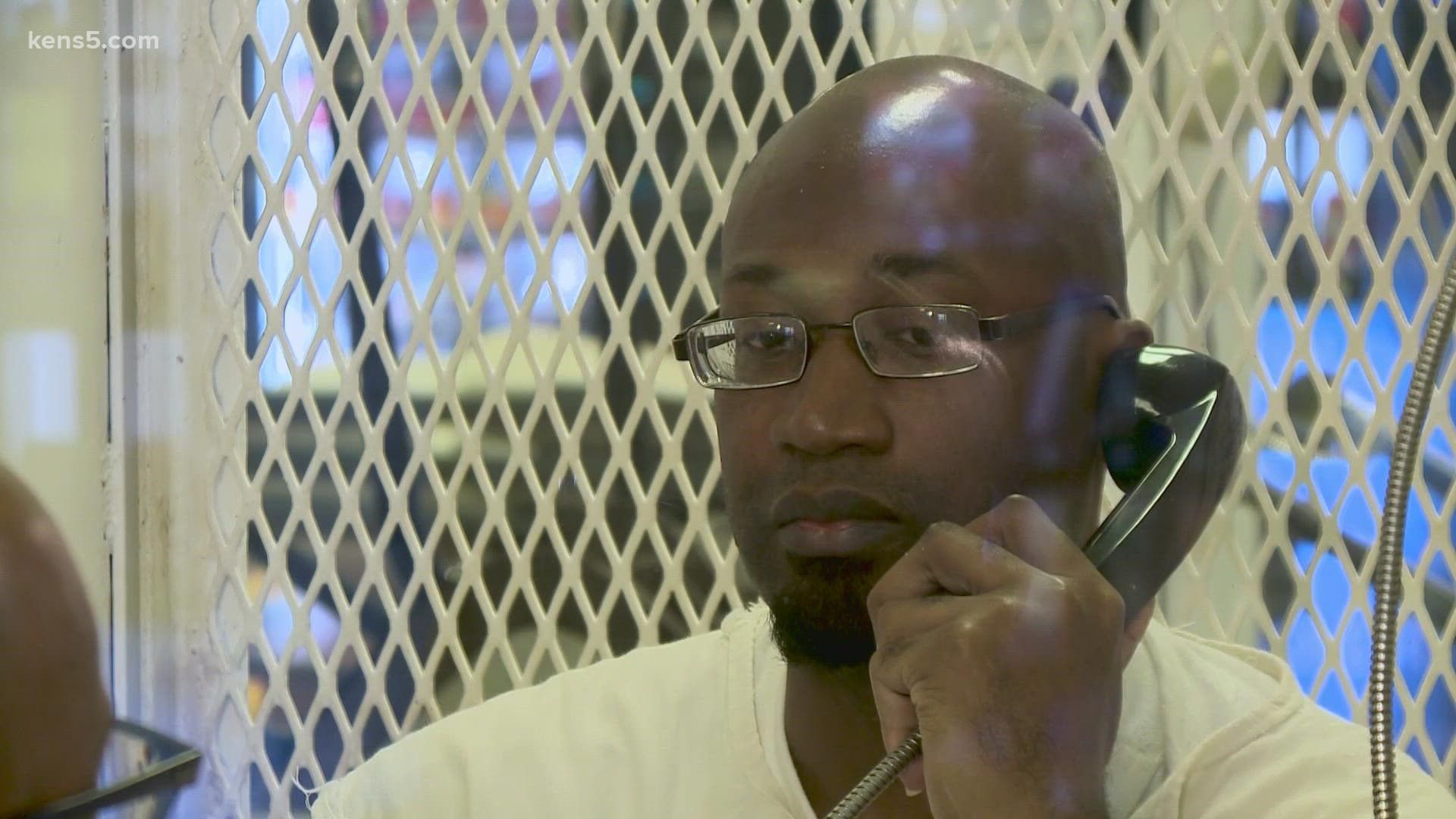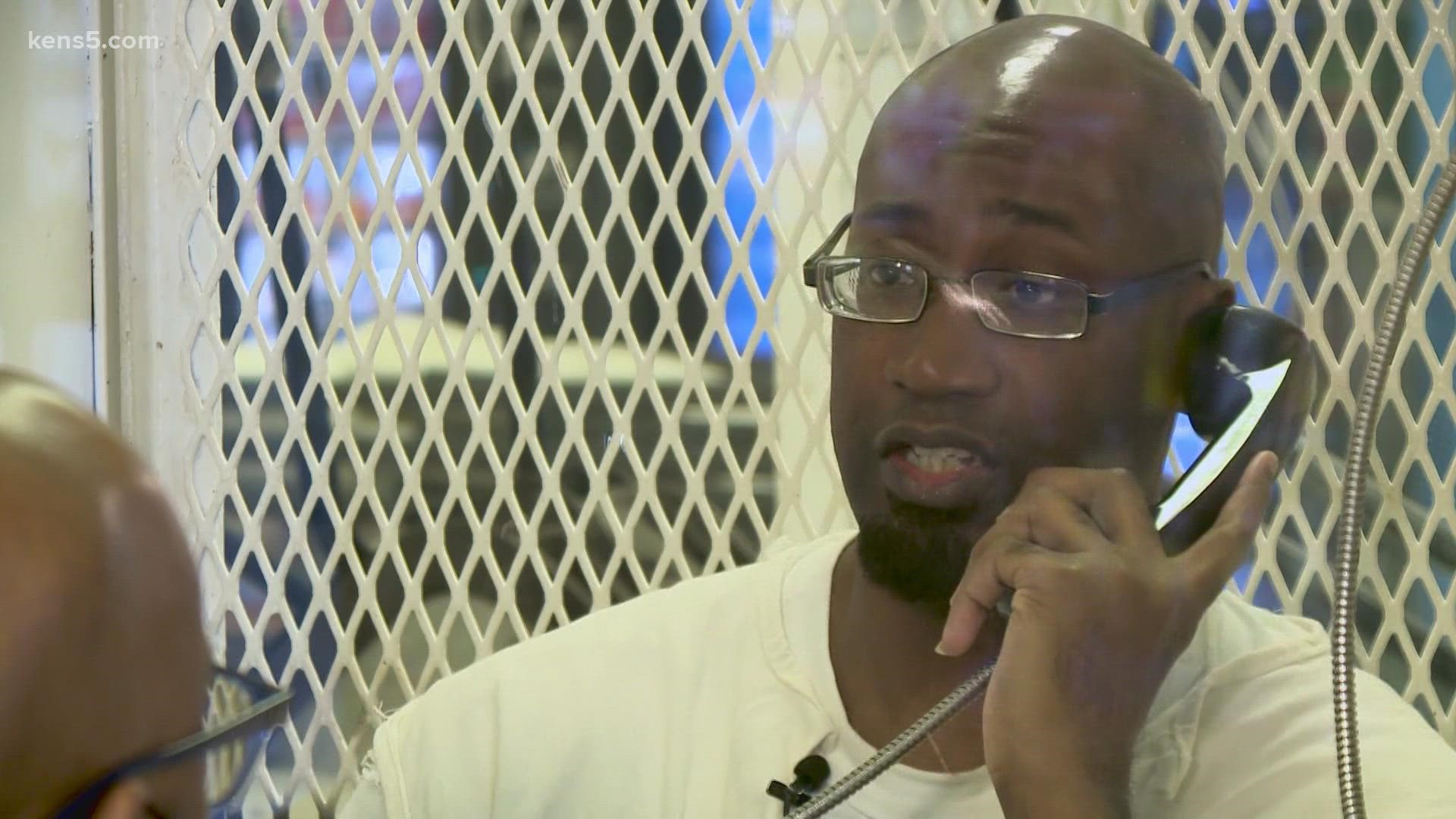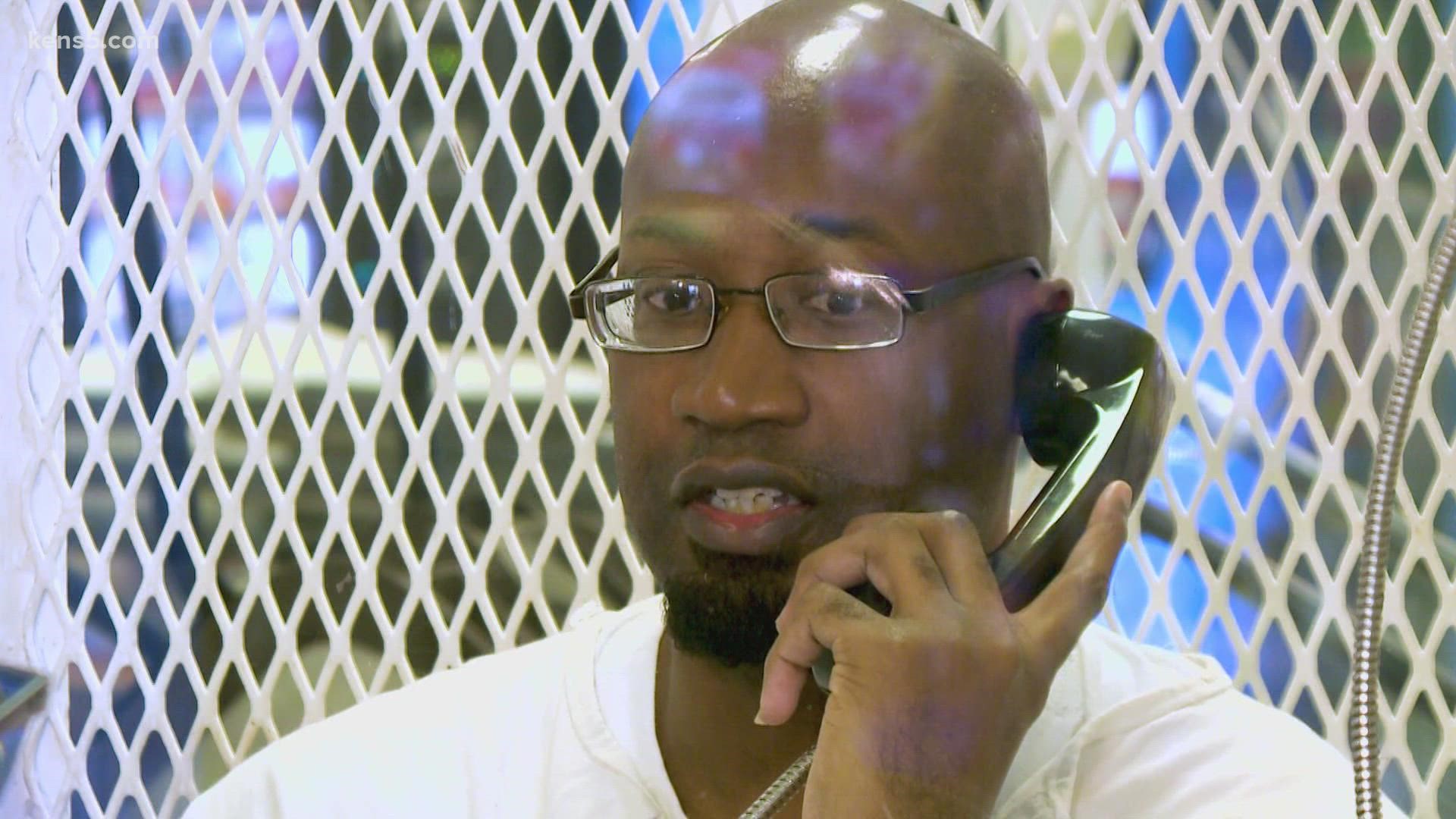Exclusive | A killer's claims: Convicted cop murderer opens up about trial, confession, dying in prison
Otis McKane said not a day goes by on Texas' death row that he doesn't think about being executed. His appeal to stop it is just starting.

The law gives boundaries and consequences when you step outside of the lines. Otis McKane crossed the line in a way that made even the vicious cringe.
Five years ago, San Antonio Police Detective Benjamin Marconi was conducting a routine traffic stop near SAPD headquarters when he was ambushed with gunfire.
Investigators said McKane lashed out at Marconi because he was angry at SAPD for not intervening in a civil custody matter.
The detective was shot twice on Nov. 20, 2016, and died. Police zeroed in on a man who previously visited their headquarters to file a report about a custody issue.
That man was McKane, who was married less than 24 hours after the killing.
Before he could honeymoon, McKane was arrested and confessed to the media as well as police detectives that he'd "lashed out at the wrong person."
On July 26 of this year, a Bexar County jury convicted him of capital murder. Several days later, he received the death penalty.
The convicted killer agreed to talk with Eyewitness News about everything but the details of his appeal.
"Everybody might not see things my way. You know, everybody has an opinion," McKane said.
He sat for an hour talking through a glass barrier and over a phone available to prison visitors because McKane said he wanted to share his story until the day he died.
Claim of innocence 'A suspect is out there somewhere'
First, he claims innocence in Marconi's murder.
Hurst: So let me get this right. You say you're innocent?
McKane: Right?
Hurst: Did you or did you not shoot and kill Benjamin Marconi?
McKane: No, I did not.
Hurst: You did not?
McKane: No, sir.
Hurst: So who killed Benjamin Marconi? If you did not.
McKane: I do not know.
Hurst: So Otis, you sat in the same courtroom (as everyone else)? You saw the same video that I did.
McKane: Right.
Hurst: Do you remember the video of the person running from the car up to Benjamin Marconi in his car? They said that was you?
McKane: That's what they say.
Hurst: So you are saying that there is someone who on this Earth is roaming around who killed Benjamin Marconi, and you ended up taking the rap for it?
McKane: I'm saying that somebody, a suspect is somewhere out there.
Mixing up confessions 'People misperceived what I was trying to say'
The 36-year-old said his confession to the media and police was the result of a mixup. McKane said he became confused in front of San Antonio's media corp.
McKane: I'm gonna be honest with you. I was high. I was paranoid. I was hurt by what I (had) just been through with the interrogation. And I was confused as far as all those questions that was being thrown at me at one time. And I feel like people misperceived what I was trying to say.
Now, he says he was making an admission to a domestic incident with the mother of his son—not admitting to Marconi's killing.
McKane: So I think people misperceived that as me admitting something to the cameras that, "Oh, he shot him because of his son." And then they asked me, "How do you feel (about) Marconi's family?" I told him like, I'm sad, and I feel like that should have never happened.
A lengthy video confession to SAPD, which the killer recanted, was played during the trial. He repeatedly spoke about doing the wrong thing to the wrong person.
"Just say things to be apologetic, so when we do go to trial, I can at least get a life sentence instead of a death sentence," he said.
McKane said he was telling the detective what he wanted to hear, knowing he was not the killer.
McKane: He just wanted an answer that fits his criteria. And, in my state of mind, I gave him what he wanted, which was the wrong thing to do, knowing that I'm innocent.
Hurst: How do I know what to believe, Otis? Because if you're saying that you lied to the officer, then how do I know that you are not lying to me now?
McKane: Because my hands are free. I've signed signatures to talk to you. I'm willing to talk to you.
Hurst: One of the expert witnesses says that their assessment of you is that you are delusional and you refuse to accept responsibility
McKane: The expert witness, the one that never actually interviewed me? Are you talking about him? Are you talking about the guy that never talked to me before in my life like we are doing? The person who don't know anything about me? That guy?
Hurst: You never see that police officer in that car, ambushed as a person shoots him twice. That is never processed in your head.
Mckane: I did not kill anybody. So a vision of me killing somebody is not in my head.
Courtroom skirmish 'I was messed up in my mind'
Upon being convicted in Marconi's killing, McKane stood up and elbowed a bailiff before being restrained.
He struck as he was about to be handcuffed, with several law enforcement officers immediately rushing to detain him.
Hurst: So, what were your thoughts when they said that you were guilty?
McKane: I was devastated. I was hurt, mad.
Hurst: You say you're upset, right? Devastated? Then there's the point where they get they're trying to take you out of the courtroom. And you elbow the bailiff. Can you explain to me what that was all about?
McKane: All my life, I tried to do what was right. And to be convicted of something I didn't do—I would have to be crazy to sit and wither up and walk out of that quote without a fight. The hurt on my heart caused me to override my thought process and do something I really didn't want to do. But I was messed up in my mind. It hurt.
Hurst: Some would say that situation is an example of what you do when you are angry. The same thing that they convicted you for, being angry, lashing out hurting somebody.
McKane: Some would say that. But some won't.
The appeal 'I want to tell everybody this'
McKane doesn't believe he got a fair trial due to pretrial publicity. And, he hints his defense did not defend him enough.
His side called one witness while the Bexar County District Attorney's Office organized two weeks of testimony.
"Otis McKane received a fair trial and was well represented by competent defense counsel," District Attorney Joe Gonzales said in a statement. "He will be able to appeal his conviction multiple times in state and federal court."
That is not McKane's perspective. He views himself as a wronged Black man sucked into a system of injustice, even likening himself to the Central Park Five.
Hurst: The facts, as I remember them, had very little to do with you being a Black man.
McKane: Right.
Hurst: They were all about your son...
McKane: Right.
Hurst: And your lack of access to your son.
McKane: From my standpoint, I want to tell everybody this. When I first got here, we (McKane and SAPD investigators) did talk about my son, and that had nothing to do with the case. They was looking for a suspect.
He said his 11-year-old son was another so-called misunderstanding in the case. At the time of Marconi's murder, McKane said he couldn't recall when he'd last seen his boy—a son who he realizes can now Google the worst about him.
The end? 'I just try to keep the human part of me alive'
On death row, McKane can have up to three visits a week. Most of his contact with family and friends happens by phone, and he also gets a five-minute call once a week.
"I just try to keep the human part of me alive," he said.
McKane is spending his days reading the Bible and studying law, typical of most inmates. There's lots of time to stare at the faucet, the door and the walls with the thought that everything will come to an end the day a correctional officer takes him away to get executed.
"I understand that it could go down that path, and if it does, the Lord will be with me," McKane said. "But (if) God wants me to stay here. I'm gonna stay here."
McKane's execution date has not been set.



